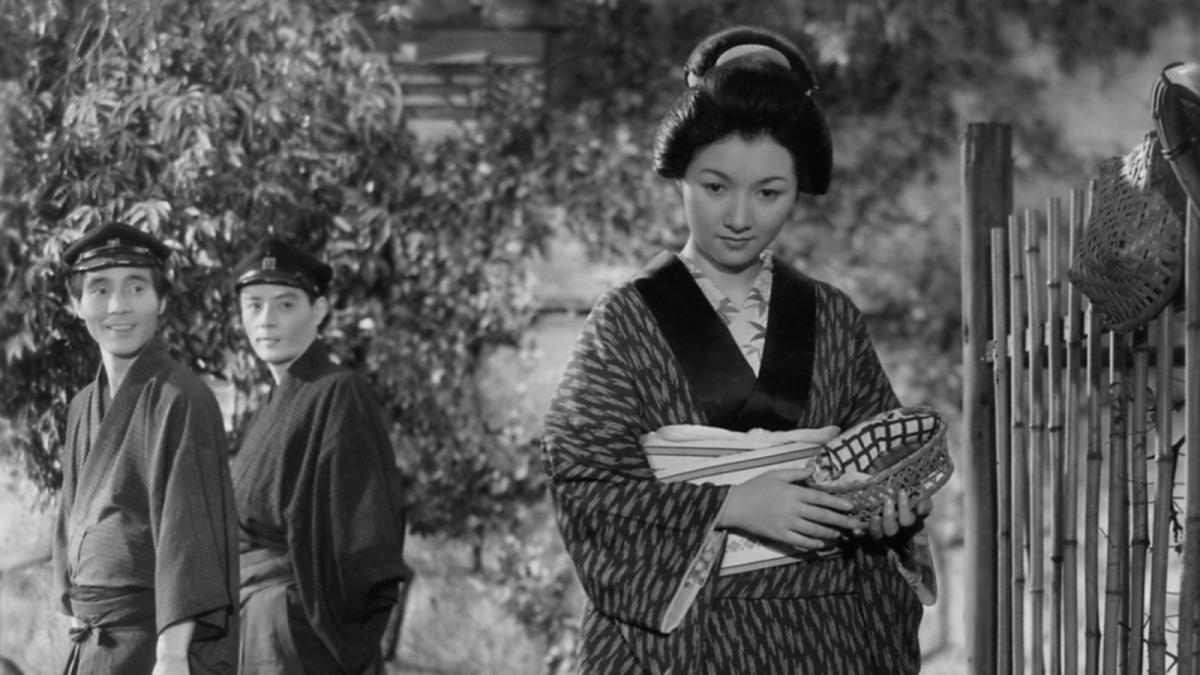“One last, devastating look at how life's cruelties are especially hard on women in Japan.” - Dan Harper, Senses of Cinema
Sunday, September 8, 4:30 p.m. | STREET OF SHAME is the last film of the great Japanese director Kenji Mizoguchi, whose career had begun in the 1920s. He became known in the West only well after World War II, when from 1952 to 1956, he had a film nominated each year for the top prize at the Venice International Film Festival, the last being STREET OF SHAME. None of them won, but Mizoguchi took the prize as best director for two of them—perhaps his best known films in the West, UGETSU MONOGATARI and SANSHO THE BAILIFF. Mizoguchi based his style on the rich traditional Japanese arts of painting, prints, and theater. From these sources, as David Bordwell has written, “He had created a hypnotic cinema centered on the dense image, governed by unpredictable spatial developments and slightly changing details … In this sense he is a conservative, but what he conserves becomes in his hands an inexhaustible resource.” STREET OF SHAME’s subject matter, the lives of five women working in a brothel, was the director’s last statement on a common theme in his films, women struggling against the cruelties of a strongly patriarchal society. (Kristin Thompson, Honorary Fellow with the Department of Communication Arts, the University of Wisconsin– Madison) The feature will be followed by David Bordwell’s Criterion Collection video essay “Games of Vision in STREET OF SHAME” (15 min.).
Awards & Nominations
Nominee - Golden Lion, Venice Film Festival
Winner - Special Mention, Venice Film Festival
Remembering David Bordwell: David Bordwell (1947–2024), a beloved film scholar, passed away earlier this year at the age of 76. Bordwell’s impact and legacy is widespread: film curators and critics, cinephiles and casual viewers have been shaped, educated, and invigorated by Bordwell’s perspectives. With this series, we invited friends and colleagues of Bordwell’s to select a film that was special to him, in the hopes that, through these titles, we can pay tribute to his enthusiasm for cinema through our own. Read more
The Film Center is ADA accessible. This presentation will be projected without open captions. The theater is hearing-loop equipped. For accessibility requests, please email filmcenter@saic.edu


